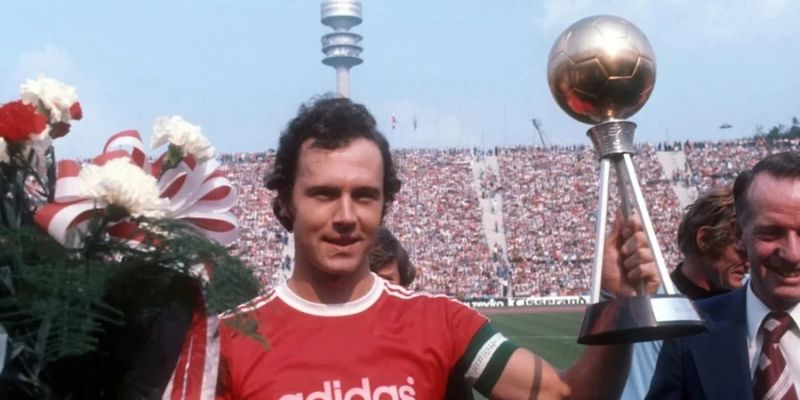Franz Beckenbauer, there are very few names that evoke a sense of awe and admiration like Franz Beckenbauer. A true legend of the game, Beckenbauer is known for his exceptional skills on the field, his leadership abilities, and his significant contributions to both Bayern Munich and the German National Team. He has rightfully earned the title of ‘Der Kaiser’ (The Emperor) for his dominance both on and off the field during his playing days.
Born in Munich, Germany in 1945, Franz Beckenbauer grew up with a passion for football. His talent was evident from a young age, as he excelled in the youth teams of Bayern Munich. He made his professional debut at the age of 18 and soon became an integral part of the team. His exceptional defensive skills, combined with his ability to read the game and make precise passes, made him stand out among his peers. Find out with go99
A Legacy of Excellence: Beckenbauer’s Impact on Bayern Munich and the German National Team

The Rise of Bayern Munich under Beckenbauer’s Leadership
Beckenbauer’s influence on Bayern Munich cannot be overstated. During his time as a player, he helped the team achieve unprecedented success both domestically and internationally. Under his leadership, Bayern Munich won three consecutive European Cups (now known as the UEFA Champions League) from 1974 to 1976, establishing themselves as one of the top clubs in Europe.
But it wasn’t just his performances on the field that made Beckenbauer a true leader. He was known for his calm and composed demeanor, which helped him guide the team through tense situations. This quality was especially evident during the 1974 European Cup final against Atletico Madrid, where he scored the equalizing goal and then calmly led the team to win in extra time.
Beckenbauer’s leadership qualities were also reflected in his off-field contributions to the club. He played a key role in shaping the club’s youth academy, which produced many talented players who went on to become stars for Bayern Munich and the German National Team. His vision and dedication to developing young players have left a lasting impact on the club.
The World Cup Triumph: Beckenbauer’s Role in Germany’s Success
One of the greatest achievements of Beckenbauer’s career was leading the German National Team to their first-ever World Cup triumph in 1974. He was not only the captain of the team but also the driving force behind their success. His leadership and tactical acumen helped the team overcome strong opponents and emerge as champions.
In the final against the Netherlands, Beckenbauer suffered a dislocated shoulder early in the match, but he continued playing and led his team to victory. This act of bravery and determination earned him even more respect and cemented his status as a true leader on the field.
But Beckenbauer’s contributions to the German National Team go beyond just their World Cup win. He was instrumental in revolutionizing German football with his innovative tactics and formations. His vision of a more fluid and attacking style of play, known as ‘libero’ or ‘sweeper’, changed the way defenders played the game and influenced a generation of footballers.
See more: https://go99.church/
The Legacy of ‘Der Kaiser’: Beckenbauer’s Enduring Influence on the Game

A Role Model for Future Generations of Footballers
Beckenbauer’s impact on the game of football goes beyond just his performances on the field. He was an inspiration to many young footballers who grew up watching him play. His technical abilities, intelligence, and leadership qualities made him a role model for future generations of players.
Many great footballers have idolized Beckenbauer, including current German National Team coach and former World Cup winner, Joachim Löw. In fact, Beckenbauer played a crucial role in convincing Löw to become the coach of the national team after their disappointing performance at Euro 2004.
An Ambassador for the Sport
Even after his retirement from playing, Beckenbauer continued to promote the sport and its values. He served as the president of Bayern Munich and was also the president of the organizing committee for the 2006 FIFA World Cup held in Germany. His leadership and efforts contributed to making the tournament a huge success, both on and off the field.
Beckenbauer’s influence extended beyond just the German football scene. He has been a global ambassador for the sport, promoting it in different parts of the world and working towards its development. In recognition of his contributions, he was awarded the prestigious FIFA Presidential Award in 2012.
Conclusion
In conclusion, Franz Beckenbauer is a true legend of the game of football. His exceptional skills, leadership abilities, and contributions to both club and country have earned him a permanent place in the history books. The ‘Kaiser’ may no longer be playing on the field, but his legacy lives on through the countless players who have been inspired by him, and the impact he has had on the game itself.



